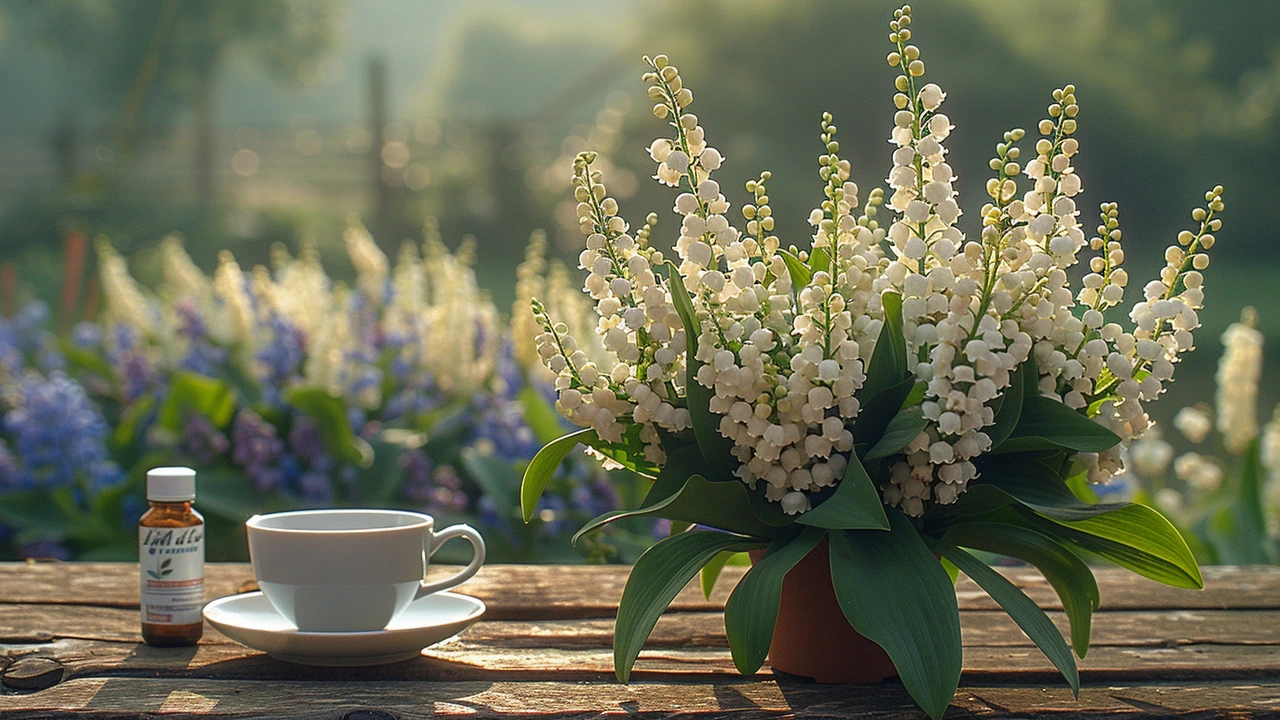Lily-of-the-Valley: What You Need to Know About This Classic Medicinal Plant
Ever wondered why Lily-of-the-Valley keeps coming up in older family health stories or herbal remedy blogs? It’s not just about the delicate, fragrant flowers. This plant has been used for hundreds of years, mainly as a natural remedy for certain heart problems. But, before you consider anything herbal, it’s worth knowing exactly what it is, what it’s supposed to help with, and what can go wrong if you don’t use it right.
Lily-of-the-Valley isn’t just a pretty face—it packs some strong, active compounds called cardiac glycosides. They can affect your heart, sometimes in a good way, sometimes dangerously. Back in the day, folks tried it to treat symptoms like heart failure or irregular heartbeats, thinking it was a mild, "gentler" alternative to stronger meds like digitalis.
But here’s where things get real. There’s a razor-thin line between the "helpful" dose and too much. Even a small mix-up with how much you take can lead to nausea, dizziness, confusion, or in bad cases, serious heart issues. That’s why most doctors don’t recommend self-medicating with Lily-of-the-Valley anymore, especially since there are modern medications with known effects and safer dosing.
You’ll see some supplements on the market with Lily-of-the-Valley extract, often advertised for heart health or detox. If you run across these, check the labels carefully. Quality control for herbal pills isn’t always strict, and you can’t be totally sure what’s really inside or how your body will handle it—especially if you’re taking other medications.
Curious if there’s any real science behind old-school claims? A handful of studies on the plant show that it truly impacts heart rhythm and fluid balance, but researchers flag the risks every time. No large-scale modern studies have confirmed safe, effective use for heart problems. Most experts say it’s just not worth the gamble with something as vital as your heart.
So how do folks still use Lily-of-the-Valley today? Sometimes, it pops up in homeopathy and in some traditional European and Asian remedies. Herbalists may mention it, but responsible ones always warn about the risks—especially for kids, pregnant women, folks with existing heart conditions, or anyone on heart or blood pressure medications.
All this means Lily-of-the-Valley is a plant you want to treat with some caution. Love it in your garden, enjoy the flowers, but don’t mess around with turning it into tea or pills without talking to a real healthcare pro who knows both modern medicine and herbal safety.
If you’re hunting for gentle ways to support your heart or lower blood pressure, ask your doctor or pharmacist about safer, science-backed supplements or lifestyle changes that actually move the needle. Don’t bet your health on mysterious or old-fashioned heart remedies just because they sound "natural" and friendly—especially when it comes to powerful plants like Lily-of-the-Valley.
Unlock the Surprising Health Benefits of Lily-Of-The-Valley Supplements
Explore the extraordinary health advantages of Lily-of-the-Valley supplements. Learn how this natural remedy can enhance your well-being and provide essential nutrients. Discover practical tips, peculiar facts, and ways to incorporate this supplement into your daily routine.
